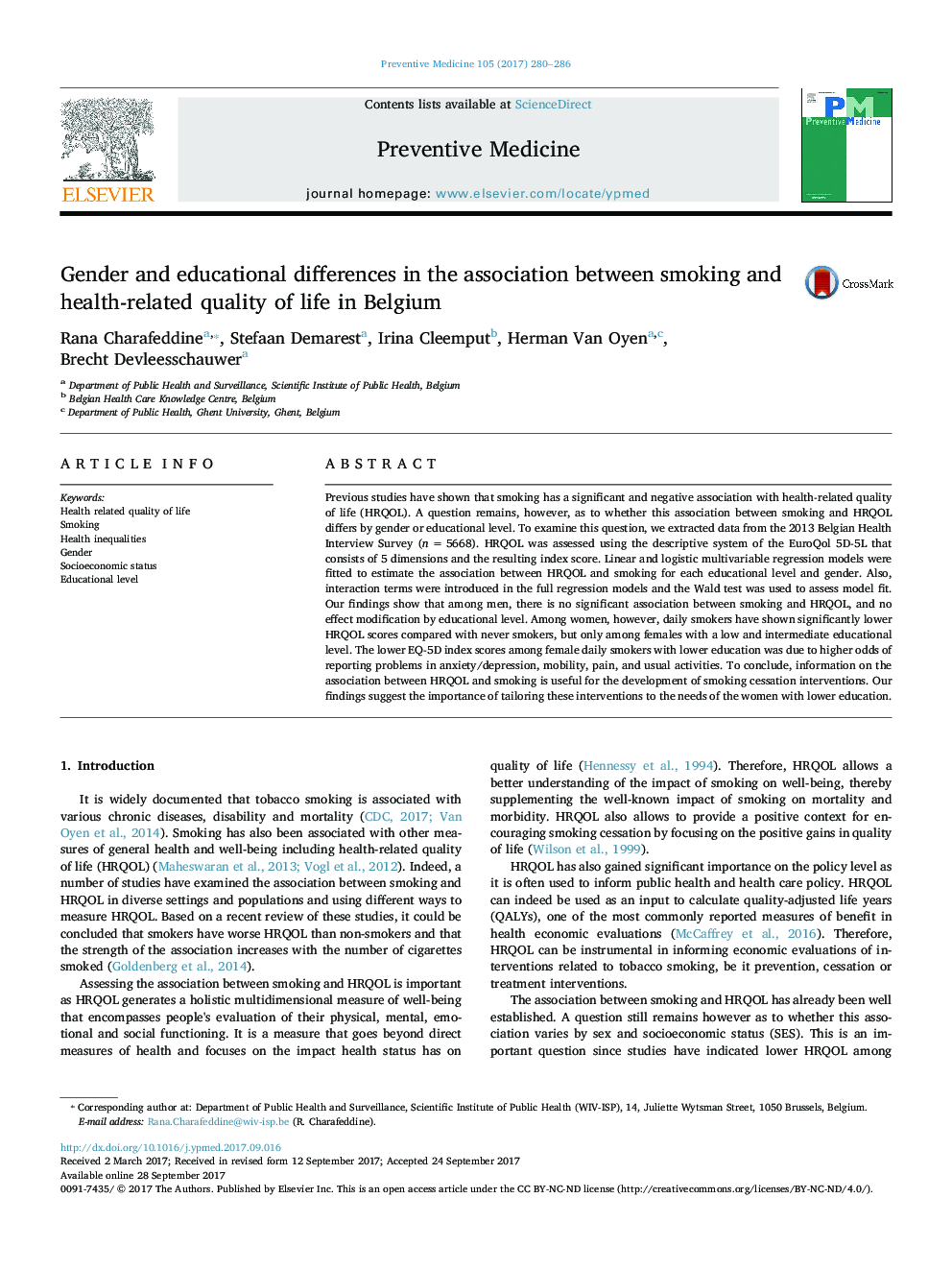| Article ID | Journal | Published Year | Pages | File Type |
|---|---|---|---|---|
| 5635487 | Preventive Medicine | 2017 | 7 Pages |
Abstract
Previous studies have shown that smoking has a significant and negative association with health-related quality of life (HRQOL). A question remains, however, as to whether this association between smoking and HRQOL differs by gender or educational level. To examine this question, we extracted data from the 2013 Belgian Health Interview Survey (n = 5668). HRQOL was assessed using the descriptive system of the EuroQol 5D-5L that consists of 5 dimensions and the resulting index score. Linear and logistic multivariable regression models were fitted to estimate the association between HRQOL and smoking for each educational level and gender. Also, interaction terms were introduced in the full regression models and the Wald test was used to assess model fit. Our findings show that among men, there is no significant association between smoking and HRQOL, and no effect modification by educational level. Among women, however, daily smokers have shown significantly lower HRQOL scores compared with never smokers, but only among females with a low and intermediate educational level. The lower EQ-5D index scores among female daily smokers with lower education was due to higher odds of reporting problems in anxiety/depression, mobility, pain, and usual activities. To conclude, information on the association between HRQOL and smoking is useful for the development of smoking cessation interventions. Our findings suggest the importance of tailoring these interventions to the needs of the women with lower education.
Keywords
Related Topics
Health Sciences
Medicine and Dentistry
Complementary and Alternative Medicine
Authors
Rana Charafeddine, Stefaan Demarest, Irina Cleemput, Herman Van Oyen, Brecht Devleesschauwer,
